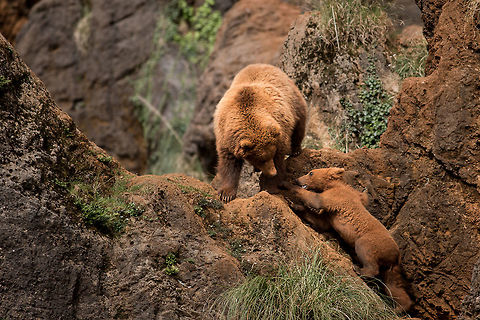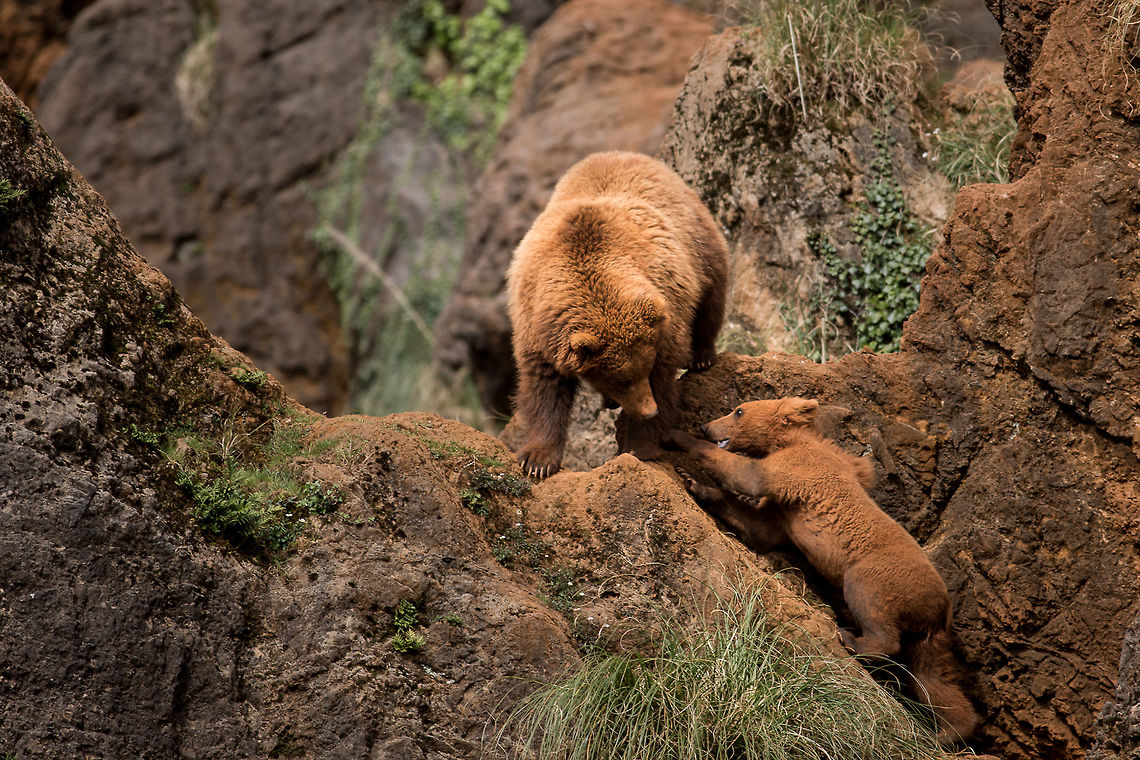
The grizzly bear is a large population of the brown bear inhabiting North America. Scientists generally do not use the name grizzly bear but call it the North American brown bear.
Similar species: Carnivorans
By Marsilio Casale
All rights reserved
Uploaded Feb 10, 2015. Captured in Barrio Cabarceno, 1028, 39627 Penagos, Cantabria, Spain.


comments (6)
looks like a pretty neat place - lost of space for the animals and very natural settings Posted 10 years ago
Posted 10 years ago, modified 10 years ago
"The remarkable brown bear (Ursus arctos) lives in the forests, tundra, and mountains of Europe, North America, and Asia. Enormous in size, these omnivorous giants consume as much as 90 pounds of food per day! Although they are apex predators, 80-90% of their diet consists of grass, fungi, fruit, honey, insects, nuts, and fish. They are mainly solitary animals, except for females and their cubs. Females mate once every 2-4 years and have delayed implantation, which means that the fertilized egg floats around in her uterus for up to 6 months before implanting. They give birth during hibernation, and the sleeping mother nurses her cubs until spring. Cubs stay with their mother for 2-4 years, during which time they form a very close bond as she teaches them life skills, such as hunting and self-defense. The females don't mate while they have cubs with them, which makes their reproduction rate particularly slow. Interestingly, studies show that increased maternal investment in offspring equates to larger brain size in brown bears. Furthermore, it has been noted that mother bears appear to be keeping their cubs with them longer in countries, like Sweden, where it is illegal to hunt bears with cubs. Such a clever strategy, but scientists aren't sure exactly how and why the bears know to employ this tactic.
Habitat loss, hunting, persecution, and conflict with humans have caused severe declines in brown bear populations around the world. They are a high priority concern for conservation, especially considering their slow reproduction rate and dependence on large, natural areas for survival. Few animals have captured the imaginations of people around the world for as long as brown bears have, and it's time to use that attention to help save these awe-inspiring creatures. {Spotted by JungleDragon user, Marsilio Casale} #JungleDragon" Posted 7 years ago